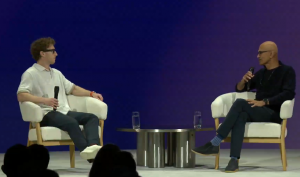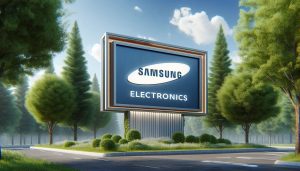Review: Nokia’s Flagship Windows Phone on Verizon
Microsoft is desperately trying to make a dent into Google’s dominance in the mobile computing business. Even Apple has been ahead of Microsoft for five years now, and BlackBerry’s smartphone market share is approximately equal to Microsoft’s.
Verizon already is selling two Windows Phone 8 smartphones — one from HTC and one from Nokia . Most recently, Verizon has launched a second Nokia Windows Phone, this time the highest-end Windows Phone currently on sale in the U.S. market. The model number is 928.![]()
Let’s start with the hardware. This is one thick, heavy and square brick. Fortunately, it is not too slippery, but rather feels OK in the hand, despite its size, weight and shape. I would not recommend it to people with small hands, however.
The Nokia 928 feels extremely solid, but the weight implies the battery ought to have been much larger than its 2,000 mAh capacity. For example, the Samsung Galaxy S4 has a 2,600 mAh battery, yet feels much lighter and thinner.
Despite the moderate battery size, the battery life is great, however — as it is on most Windows Phones. The only phone which clearly beats it in the battery life department is the Motorola Droid Maxx.
I recommend that prospective Nokia 928 buyers also consider the HTC 8X, because it feels better in the hand than the Nokia 928. It’s thinner, has better rounded edges, and perhaps most importantly is made from a very pleasant non-slippery material. It’s got a slightly smaller battery at 1,800 mAh and the camera perhaps isn’t as good, but on the whole I have a sense that many people will still prefer the HTC 8X because it feels so great in the hand.
The Nokia 928’s display is 1280×768, or 15×9 aspect ratio. This is less than the 1920×1080 standard on the latest flagship Android devices. That said, the display is excellent in quality otherwise.
The Nokia 928 doesn’t have expandable memory. It comes in a single 32-gig configuration. In contrast, iPhone buyers can choose 16-, 32- or 64-gig configurations. Most Android phones have expandable memories.
The Nokia 928 works on LTE on Verizon’s network in the US, and on most GSM/HSPA networks abroad. Measuring a speed test on Verizon’s LTE network, the Nokia 928 performed way ahead of devices on other networks, clocking 40 meg download speeds and 20 meg upstream.
Those numbers are outright insanely fast, and quicker than the wired broadband in most homes! In comparison, the Samsung Galaxy S4 on AT&T performed for the most part at approximately half those speeds, which is still superb.
What about the operating system?
The fundamentals of Windows Phone 8 are as solid as when I reviewed it six months ago. It is fast, stable and pleasant. How does it compare with Apple, Google/Android and BlackBerry? In my opinion, it’s mostly a matter of taste rather than objective performance and functionality. That said, I think Android has the most features.
Compared to Android, the one thing that stands out is that Windows Phone 8 is so consistent from device to device. Even the $130 Nokia 521 on T-Mobile has all the important features of the 928 model, and the perceived CPU performance is largely indistinguishable. Obviously, for a lot less money you get a smaller display, no front-facing camera, and so forth — but still, even at $130 it’s like having a “Nexus”-equivalent reference phone but at a fraction of the price.
The one area where Windows Phone loses big is in applications. The fact is that many of the applications that I value the most, and use every day, every hour, simply are not available on Windows Phone.
While my situation is specific, so are those of other people. We all have our special needs and special interests. This is the so-called “long tail” of content. If you want to go with Windows Phone, you had better be sure that your long tail of application needs fits inside what’s available for Windows Phone.
The lack of apps for me, on the Windows Phone platform, comes down into two buckets:
1. Google. The only major Google app available is YouTube. All of the other Google services aren’t available on Windows Phone, even though some of them are available on iOS. BlackBerry is in the same boat as Windows Phone here, by the way.
2. Everything else. The apps I use to listen to radio, read the news, monitor my car, charge my car, pay for coffee, chat with people and book a hotel are unavailable for Windows Phone 8. Any one of these missing apps makes the Windows Phone platform a non-starter for me personally.
Other pet peeves: The Windows Phone platform has some other annoying missing items that I find particularly irritating. Here are some, from the top of my mind:
1. The address book does not synchronize with the categories field in Outlook on a regular Windows PC. I’ve spent 20 years in Outlook refining this field, carefully organizing all of my contacts, and now Microsoft’s own phones don’t even use it?
2. If you can’t synchronize the categories field, you can’t filter or sort on it.
3. You can’t even sort the address book based on company name. Remember, “sort” is not the same as search. Sometimes you have entered different company names differently, but would like to sort them so you see your inconsistencies. For example, Qualcom vs. Qualcomm vs. Qualcomm Inc, or something to that effect.
4. There is no “total contacts count” in the address book. You want to know whether you have 24,998 or 24,999 contacts in your address book, so you have an indication whether the synchronization with Outlook or whatever, has worked or not.
5. You can’t synchronize with a local PC via the good old USB cord. Let’s say you have a second or third address book you want to keep completely offline, synchronizing only to a local PC, with no connection to a cloud service what-so-ever. Windows Phone doesn’t let you do that.
6. I find the podcast player lacking when compared to the Apple ecosystem. It’s too little space here to go into specifics, but when you try to make library-wide updates, synchronize bookmarks across smartphones, tablets and PCs, the Microsoft podcast player just doesn’t measure up against Apple. Hey, at least unlike Android, Microsoft has one.
The final analysis: The Nokia hardware is generally among the very best. The Microsoft Windows Phone operating system is overall very competitive. So should you buy the Nokia 928 on Verizon — or for that matter any Windows Phone on any network?
If you are 100% sure that you will not need any of the hundreds of thousands of incremental apps available on Android and iOS — but not Windows Phone — then by all means get the Nokia 928. I’m not among these people. The Windows Phone app deficit is simply a non-starter for me.
There isn’t anything wrong with Windows Phone that isn’t theoretically fixable. The problem today, as I see it, is that while Windows Phone is equally good as the products from Apple, Google and BlackBerry in most respects, there is no “one thing” that makes a Windows Phone a must-have.
What should be Microsoft’s strategy with Windows Phone now? Apart from the obvious “blocking and tackling” of trying to narrow the “app gap”, it should acquire BlackBerry or at least offer a model with a BlackBerry-style keyboard. That’s probably the easiest path to differentiation against Android and Apple.
[Cross-posted at The Street]
A message from John Furrier, co-founder of SiliconANGLE:
Your vote of support is important to us and it helps us keep the content FREE.
One click below supports our mission to provide free, deep, and relevant content.
Join our community on YouTube
Join the community that includes more than 15,000 #CubeAlumni experts, including Amazon.com CEO Andy Jassy, Dell Technologies founder and CEO Michael Dell, Intel CEO Pat Gelsinger, and many more luminaries and experts.
THANK YOU













